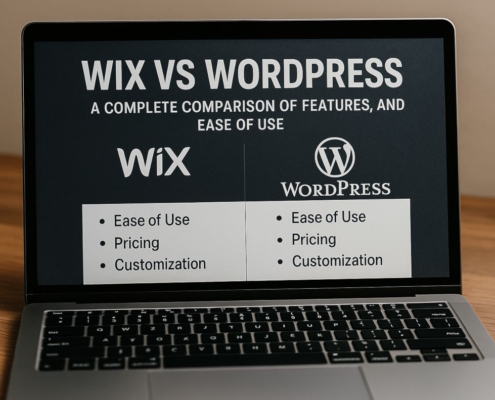Who is responsible for taxes on a land contract?
For purchasers and sellers alike, understanding the complexities of land transactions is no easy feat. The question of “Who pays property taxes on a land contract?” is a typical one among those thinking about buying or selling a land contract. What follows is a comprehensive explanation of land contracts, including all applicable fees and costs, including property taxes.
Now, let’s talk about land contracts. For homebuyers who have trouble securing conventional mortgages, a land contract might be a viable alternative. The buyer of land pays the seller a predetermined amount each month in accordance with the terms of the contract. In exchange, they are free to move in and start using the property immediately, just as if they had taken out a conventional mortgage to buy the house. The buyer does not own the property until the seller receives full payment. So, under this structure, who pays the property taxes?
Mortgage vs. Land Contract
The main distinction between a mortgage and a land contract is the role of the lending institution and the transfer of property ownership. A property contract is structured so that the seller, in effect, lends money to the buyer, who then pays the seller in stages. The buyer will not officially own the property until the seller has received all of the agreed-upon payments, which serves as a security measure.
Mortgages, on the other hand, allow buyers to acquire immediate property ownership after securing financing from a bank or other lending organization. Paid in full, the mortgage releases the lender’s claim on the property, which served as collateral for the loan.
Taxes on a land contract
In most land contracts, the buyer is the one who has to pay the property taxes. This is due to the fact that the buyer effectively assumes the role of the homeowner, even though they do not possess the formal title. They move in, start using the facilities, and share in the appreciation of the property’s equity the minute the contract is signed. So, the buyer typically ends up footing the bill for property taxes, which are associated with the advantages and disadvantages of homeownership.
Additional property-related expenses, such as insurance premiums and repairs, are the buyer’s responsibility. In the early phases of a deal, the seller will often include this demand in the contracts they offer to the buyer. Then why are these expenses the responsibility of the land contract buyer?
The buyer is effectively investing in the property through these payments, similar to a rent-to-own arrangement. The buyer assumes all duties and responsibilities of a homeowner on the first day, even if the seller retains legal title until the final payment. Therefore, it is common for them to be responsible for paying the mortgage and other homeowner expenses, such as property taxes.
Where Does the Seller Fit In?
Because they retain legal title until full payment is made, sellers have an incentive to ensure that buyers pay their property taxes on time. Unpaid taxes could form a lien on the property if the buyer goes into default, making the transfer of legal title more difficult.
The typical repayment schedule for a land contract is monthly payments spread out over a number of years. With the last, higher payment—sometimes called a balloon payment—the buyer and seller finalize the deal and the buyer receives legal ownership to the property.
Prior to this last payment, both parties are responsible for keeping the property taxes current. Land contracts oblige the buyer to accept this responsibility from the very beginning, as it is a component of the larger obligation that they have.
Getting Title Insurance and Conducting a Title Search Are Critical
A title search is mandatory prior to the purchase or sale of any land deal. If there are any liens or title problems on the property that could affect the sale, this search will show them. To protect yourself from potential ownership disputes down the road, title insurance is a must-have.
Important Things to Remember
Buyers and sellers alike would do well to familiarize themselves with the specifics of land contract law. Talking to an experienced law company or real estate agency can help you through the process and make sure everyone knows what they’re responsible for.
There are a number of advantages to using a land contract to sell your property. Since not everyone is eligible for conventional loans, this helps increase your pool of prospective buyers. Since land contracts often have a higher interest rate compared to conventional mortgages, it can potentially yield better long-term profits.
On the other hand, not everyone is ready to handle payment collection or the fallout in the event of a buyer default. Selling your land contract to a qualified buyer of mortgage notes allows you to earn a lump payment, similar to a traditional property sale. The buyer will pay you cash and assume ownership of the contract.
Questions and Answers
1. Am I able to sell my mortgaged home through a land contract?
It can be quite challenging to sell a house on a land contract with an existing mortgage. The most important part of any mortgage agreement is the “due on sale” clause, which states that full payment of the loan is required upon sale or transfer of the property. This clause may be activated if the seller sells the land on a contract without completely paying off the mortgage. This means that the buyer essentially gains an interest in the property.
The present mortgage lender’s approval is usually required to move forward with such a sale, although it is not impossible. Lender approval is conditional on meeting specific requirements; refusal necessitates exploring alternative funding options.
2. Do I get a tax break for purchasing land?
You won’t be able to deduct the cost of buying land from your personal income taxes right away in the year that you acquire it, because in most cases, the acquisition of land itself isn’t tax deductible. Nonetheless, there are additional expenses and situations in which the land cost can eventually end up as a tax deductible. Some of the expenditures used in purchasing and developing land might be written off as business expenses or depreciated if it gets used for agricultural purposes or as rental properties.
Similarly, if you construct something on the land and put it to use to make money, you can deduct some of the land’s costs from your property taxes. Also, you can usually deduct the property taxes you pay on the land.
3. Is it required to report land contracts for tax purposes?
In a land contract transaction, both the seller and the buyer are required to file tax returns. Sales revenue, including interest on installment payments, is taxable to the seller. Capital gains from sales may also be taxable to the seller, albeit this depends on the specifics of the sale and the length of time the seller owned the property in question.
If the land is going to be used as a main residence or for commercial reasons, the buyer might be able to claim the interest paid on the installments as a tax deduction. It is important for both parties to keep detailed records of all payments and receipts, along with any extra costs associated with the transaction. It is essential to seek advice from a tax expert to clarify any potential tax consequences and make sure that both sides meet their reporting obligations in accordance with the rules and regulations in their respective jurisdictions.































